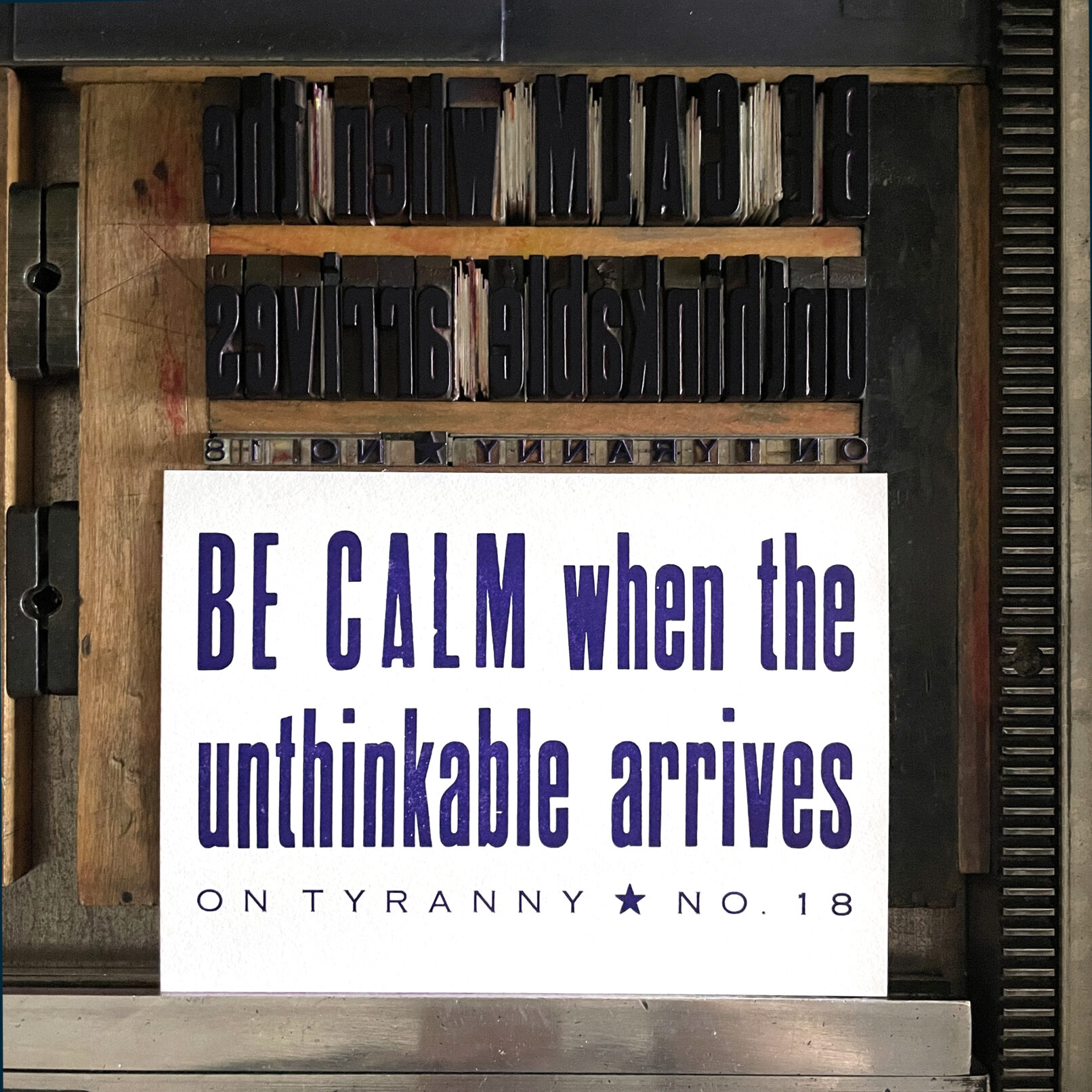“Modern tyranny is terror management. When the terrorist attack comes, remember that authoritarians exploit such events in order to consolidate power. The sudden disaster that requires the end of check and balances, the dissolution of opposition parties, the suspension of freedom of expression, the right to a fair trial, and so on, is the oldest trick in the Hitlerian book. Do not fall for it.”
Timothy Snyder, On Tyranny
In On Tyranny, Snyder uses the term “terror management” to mean “the exploitation of real, dubious, and simulated terror attacks to bring down democracy (109).” He briefly describes the questionable Reichstag fire, which allowed Hitler to shift from governing through mostly democratic means to bring in a more permanent Nazi regime. In a more contemporary context, Snyder talks at length about the ways Putin has used this tactic in Russia in order to take away civil liberties: by having cities bombed and then blaming Russia’s Muslim population, by having Russian citizens and dissenters killed, by taking control of Russian television and by eliminating elected governorships, for example. Putin then went on to try similar terror management tactics in Ukraine, France, Germany, and the United States, to differing degrees of success.
For many of us in the U.S., what was “unthinkable” in 2016 happened on January 6, 2021. When Trump supporters attempted a coup on the U.S. Capitol, it was thwarted, but as Snyder says in his YouTube video on this tenet: “the thing about failed coups is that they just don’t go away. Failed coups are lessons for those who wish to carry out successful coups.” He concludes this chapter by saying that “for us, the lesson is that our natural fear and grief must not enable the destruction of our institutions. Courage does not mean not fearing, or not grieving (110).” We might add that it doesn’t mean not being angry or outraged, particularly when we see our country engaging in behaviors we find abhorrent. But we must not react to acts of terror with subsequent support for authoritarianism—or even additional lawlessness. By doing so, we play into authoritarians’ hands.
When Snyder speaks of “being calm” in the face of the unthinkable, he’s emphasizing the point that terror attacks and political emergencies (some real, some contrived) are not a reason to abandon the baby with the bathwater. Just because our institutions are under attack (including the right to vote) doesn’t mean we should forsake them. Systems are composed of people, and people can be persuaded and have their minds changed. This also speaks to disinformation we’re seeing on the left trying to dissuade voters from participating in the 2024 election as a protest against U.S. support of Israel’s war in Gaza. The choice is a false one, as doing nothing will definitely help to preserve the status quo, while doing something has the potential to tip the scales, even if in an infinitesimally small way, in the direction we want to go. The unfortunate reality is that change occurs through education, outreach, persistence, constant engagement, and patience—and not through despair and inaction.
Hear Timothy Snyder speak about this lesson on YouTube.
This lesson was letterpress printed with handset wood type and reflex blue ink on a Vandercook proofing press.

